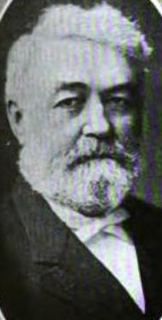A Quote by Samuel Johnson
Such is the constitution of man that labour may be styled its own reward; nor will any external incitements be requisite, if it be considered how much happiness is gained, and how much misery escaped, by frequent and violent agitation of the body.
Related Quotes
The more we come to rely on government, the fewer freedoms we will enjoy. Government will start dictating what we can own, eat and drive, how much of our money they will let us keep, how we run our businesses, how many - if any - guns we can own, and what we may and may not say. Oh, wait! They are already doing that. To preserve freedom we must fight for it.
Satiety depends not at all on how much we eat, but on how we eat. It's the same with happiness, the very same...happiness doesn't depend on how many external blessings we have snatched from life. It depends only on our attitude toward them. There's a saying about it in the Taoist ethic: 'Whoever is capable of contentment will always be satisfied.
If any person wants to see clearly just how much she has changed - whether for better or worse - let her revisit after some lapse of time any place where she has ones lived. She will meet her former self at every turn, with every familiar face, in every old recollection ... She will see how much she has gained in some respects, how much she has lost - irretrievably lost - in others.
Under a government which imprisons any unjustly, the true place for a just man is also in prison, the only house in a slave State in which a free man can abide with honor. They do not know how much truth is stronger than error, nor how much more eloquently and effectively he can combat injustice who has experienced a little in his own person. If the alternative is to keep all just men in prison, or give up war and slavery, the State will not hesitate which to choose.
Our possibilities of happiness are already restricted by our constitution. Unhappiness is much less difficult to experience. We are threatened with suffering from three directions: from our own body, which is doomed to decay and dissolution and which cannot even do without pain and anxiety as warning signals; from the external world, which may rage against us with overwhelming and merciless forces of destruction; and finally from our relations to other men. The suffering which comes from this last source is perhaps more painful to us than any other.
When I wrote 'We Were The Mulvaneys,' I was just old enough to look back upon my own family life and the lies of certain individuals close to me, with the detachment of time. I wanted to tell the truth about secrets: How much pain they give, yet how much relief, even happiness we may feel when at last the motive for secrecy has passed.
How much time have you invested in thinking about strategy? How many options have you considered before the plan was written? How have you ensured that the thinking behind the plan is challenged? How much time do you spend exploring trends, possibilities and cool stuff? How much time is spent playing with ideas, hopes and dreams?
I have an argument that to master any field, it's simple: it's a function of time. How much you devote yourself to the process, how much experience you get, how much you're willing to expand your limits, how willing you are to develop your own style. If you're willing to put 10,000 hours, something amazing is going to happen.
It is not eminent talent that is required to ensure success in any pursuit, so much as purpose-not merely the power to achieve, but the will to labour energetically and perseveringly. Hence energy of will may be defined to be the very central power of character in a man-in a word, it is the Man himself.
If you punish a child for being naughty, and reward him for being good, he will do right merely for the sake of the reward; and when he goes out into the world and finds that goodness is not always rewarded, nor wickedness always punished, he will grow into a man who only thinks about how he may get on in the world, and does right or wrong according as he finds advantage to himself.






































